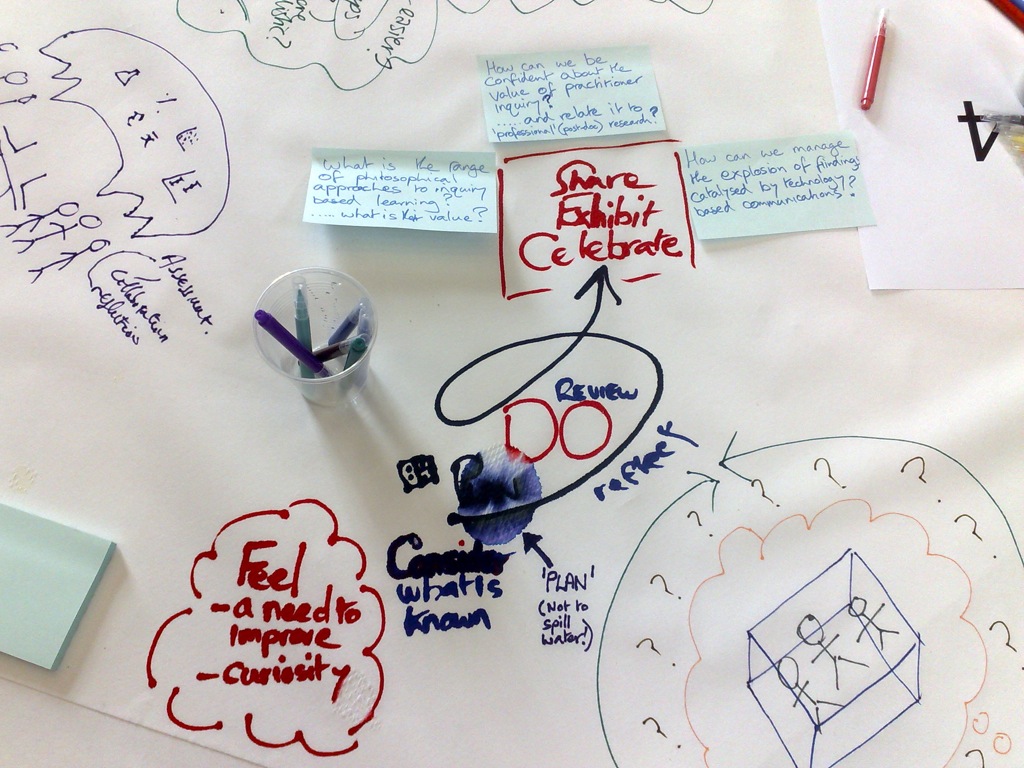
The Learning Through Enquiry Alliance conference at Sheffield University is a breath of fresh air – practitioner led, but research oriented, but above all a sense of camaraderie with many others struggling with the ideas we have been exploring for the last five years.
A ‘world café’ exercise to break the ice led to my re-draft of an action inquiry model on the tablecloth, adding my latest concern for ‘feeling’ based on my interest in John Heron’s work. I have added a ‘FEEL’ aspect – feeling the need to improve, feelng curiosity which relate to Heron’s ideas of zest and interest around delight. We have for a long time talked about exhibiton as a mode of assessment – I have clarified in this diagram by adding the word ‘celebrate’, that this is as important to feeling as it is to knowledge and communication.

Hi Richard, good to see feelings being worked in to AR. As action researchers we talk about practitioner improvement, but I wonder as individuals if we need to rest from involvement in ‘improvement’ in someway simply because it is so intensely connected to self and to the emotions you talk of. I wonder is action researcher has a mechanism of regeneration to be sustainable.
I see the need to recognise feeling as a source of creativity when considering actions. I also see feeling providing the motivation to persevere. Finally there is feeling in outcome. What the ‘good’ action researcher must do, is be aware of their feelings and tap into the good they bring without being deflected nor partial due to their potential for predjudice. Good reflective practice, it seems to me, will examine feelings as well as more ‘objective’ evidence when judging whether improvement has taken place. As for resting from improvement, that is a very perceptive point – when do we allow ourselves to feel we have arrived? My sense of this is that we become effective improvers and that is the reward and a place to rest, rather than the individual attempts to improve we make, worthy though these are. Many of the remarks from graduates of the Ultraversity programme, two years on, seem to support this.
The world needs designers like you who can humanized the use of technology! Thank you for sharing your reflections and your dissertation in a very generous way. I have not only learned from it but was also inspired to carry on with my dissertation study. Part of my reflections and theoretical propositions will give reference to the major highlights of your study methodology, thesis and reflections. Thank you very much!